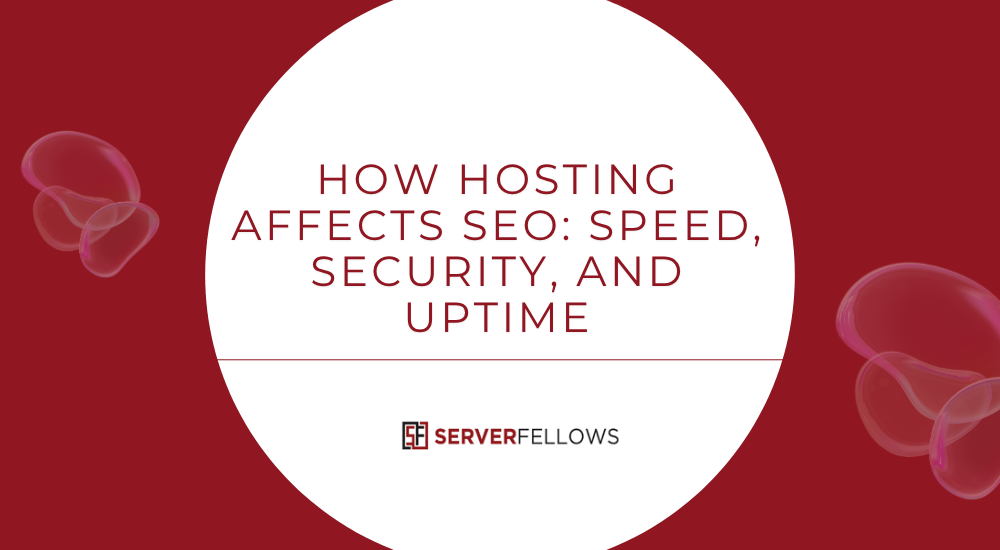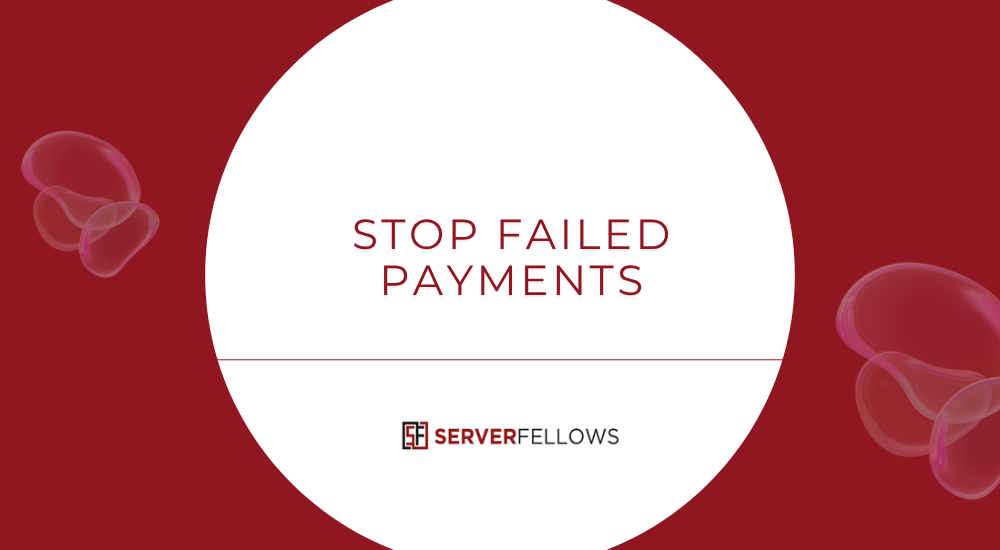
How Hosting Affects SEO: The Hidden Engine Behind Rankings
When most people think about search engine optimization, they picture keywords, backlinks, and content. But one crucial factor often overlooked is hosting. Your hosting provider directly impacts your site’s performance — from speed and uptime to security and scalability. These technical elements are the invisible foundation that determines how efficiently your content reaches users and search engines.
In this comprehensive guide, we’ll explore how hosting affects SEO, which features truly matter, and how investing in the right host can elevate your rankings, user experience, and online growth.
Why Hosting Matters for SEO
Every search engine’s primary goal is to deliver fast, secure, and reliable results to users. Hosting determines how quickly your pages load, how often they’re accessible, and how safely they handle user data. Even the best-optimized content can struggle to rank if your hosting infrastructure is unreliable or slow.
Here’s a quick overview of how hosting affects SEO:
- Speed: The faster your pages load, the better your Core Web Vitals and the higher your chances of ranking.
- Security: A secure website builds trust and avoids penalties from hacked or compromised pages.
- Uptime: High availability ensures consistent crawlability and user access.
- Scalability: Ability to handle traffic surges without downtime preserves engagement and trust.
To fully understand these points, let’s dive deeper into each area.
1. Security and HTTPS — Foundations of SEO Trust
Search engines prioritize safety. Sites without SSL certificates or proper protection appear as “Not Secure” in browsers, leading to lower click-through rates and potential ranking drops.
Key Security Features That Strengthen SEO
- SSL Certificates: An SSL certificate enables HTTPS, encrypting the connection between your server and the user’s browser. This is a baseline ranking signal. Every site should have it.
- Automatic Renewal: Renewing SSLs automatically ensures continuous protection and avoids unexpected lapses.
- Malware Protection: Continuous scanning and firewall rules prevent infections that could get your site blacklisted by Google.
- Timely Patching: Vulnerable software is a major attack vector. A quality host updates and patches systems proactively.
- Regular Backups: In case of compromise, quick recovery from clean backups prevents long-term ranking damage.
Strong security preserves trust signals and user confidence, both of which indirectly enhance your SEO. A host that integrates automated SSL, malware defense, and backups — such as ServerFellows.com — eliminates many risks before they impact your visibility.
2. Speed and Performance — The Core Web Vitals Connection
Google’s Core Web Vitals (LCP, INP, CLS) measure how fast and stable a webpage feels. Hosting plays a direct role in improving these metrics. A sluggish server leads to higher bounce rates and lower dwell time, both of which signal poor user experience.
Hosting Features That Improve Page Speed
- NVMe SSD Storage: Reduces latency and read/write time for faster page loads.
- HTTP/2 and HTTP/3 Protocols: Allow multiple requests simultaneously, drastically improving performance.
- Built-in Caching: Server-level caching reduces redundant processing.
- Content Delivery Network (CDN): Brings your content closer to users geographically, cutting load time globally.
- Optimized PHP Handlers and Database Engines: Reduce execution lag for WordPress, WooCommerce, and other CMS platforms.
When comparing hosts, always check whether they use NVMe SSDs, offer CDN integration, and provide caching support. On ServerFellows.com, for instance, these features come standard — ensuring your pages meet Core Web Vital thresholds consistently.
3. Uptime and Reliability — Protecting Crawl Equity
Downtime isn’t just inconvenient; it’s detrimental. When your site goes offline, search engines can’t crawl it, users bounce, and valuable crawl equity erodes. Even small interruptions can affect indexing and rankings if they occur frequently.
How Reliable Hosting Supports SEO Stability
- 99.9%+ SLA Uptime: Indicates the host’s commitment to consistent service.
- Proactive Monitoring: Detects issues before they escalate.
- Anycast DNS: Routes traffic through the nearest and fastest data center.
- Failover Systems: Automatically switch traffic if one node fails.
- Redundant Infrastructure: Ensures hardware or power failures don’t lead to outages.
Choosing a provider with strong redundancy and uptime guarantees ensures that your website remains visible and accessible. It’s one of the simplest ways to protect long-term SEO performance without altering your content.
4. Scalability — Handling Growth Without Crashes
Your hosting must adapt to traffic fluctuations. Viral campaigns, product launches, or seasonal spikes can overwhelm underpowered servers, leading to slowdowns or downtime — both harmful for rankings.
How Scalable Hosting Enhances SEO
- Auto-Scaling Resources: Dynamically adjusts CPU, RAM, and bandwidth.
- Generous Bandwidth: Prevents throttling during high-traffic periods.
- Load Balancing: Distributes traffic evenly for consistent performance.
- Edge Caching: Keeps content close to users, even during surges.
Scalable environments maintain fast response times under load, ensuring positive user signals and steady search visibility. With managed hosting solutions like ServerFellows.com, growth never comes at the cost of reliability.
5. Server Location and Its SEO Impact
Where your server is located influences latency — the delay before data transfer begins. Shorter distances between your user and the server mean faster load times and better SEO.
Why Proximity Matters
- Faster Time to First Byte (TTFB): Critical for mobile users and Core Web Vitals.
- Geographic Relevance: Search engines consider server IP and performance when ranking local queries.
- CDN Support: While CDNs reduce distance globally, a nearby main server still improves responsiveness.
If your audience is global, a hosting provider with distributed data centers or CDN integration ensures equitable speed worldwide.
6. Crawl Budget and Bandwidth Considerations
Crawl budget defines how many pages search engines crawl within a specific time frame. Hosting limitations like restricted bandwidth or rate-limiting bots can reduce your visibility.
Hosting Best Practices to Improve Crawl Efficiency
- Monitor server logs to ensure crawlers aren’t being blocked.
- Avoid 429/503 errors caused by bandwidth throttling.
- Allow known crawler IPs unrestricted access.
- Enable compression and HTTP/2 to reduce resource load.
High-performing servers allow more pages to be crawled faster, ensuring fresh content is indexed promptly.
7. IPv6 and Modern Networking
IPv6 adoption can improve crawl efficiency and overall speed. While not a ranking factor, it enhances connectivity and reliability. Sites using dual-stack (IPv4 + IPv6) configurations often see reduced latency and better accessibility across newer networks.
This improvement in accessibility supports consistent indexing and better user experiences — two key ingredients in SEO performance.
8. Shared vs. Dedicated IP — The Truth
In earlier SEO eras, dedicated IPs were thought to boost rankings. Today, that’s largely irrelevant. Search engines assess domains, not IP addresses. However, a dedicated IP may still benefit you if:
- You need direct server control for custom setups.
- You send high-volume emails and care about reputation.
- You want isolation from potential bad actors on shared servers.
Otherwise, focusing on uptime, security, and speed provides far more tangible SEO value than worrying about IP types.
9. Managed WordPress Hosting — Does It Automatically Improve SEO?
Managed WordPress hosting simplifies performance optimization by including tools like caching, CDN, and compression. While these help, they don’t fix everything. Layout shifts (CLS) or large contentful paint (LCP) issues often stem from design or plugin inefficiencies. To truly maximize your Core Web Vitals, you still need optimized images, lightweight themes, and minimal scripts.
Platforms like ServerFellows.com handle the infrastructure part — leaving you free to focus on optimizing your content and design.
10. Monitoring and Maintenance — The Long-Term SEO Advantage
A high-performing site today can degrade tomorrow without continuous monitoring. Logs, uptime checks, and performance analytics reveal subtle issues before they snowball into SEO damage.
Essential Monitoring Tools and Practices
- Synthetic Monitoring: Simulates user visits to detect anomalies.
- Server Resource Analytics: Prevents overload or memory leaks.
- Automatic Backups: Safeguard data against unexpected crashes.
- Regular Performance Audits: Maintain Core Web Vitals and uptime consistency.
With automated monitoring and proactive support, hosts like ServerFellows.com help maintain long-term SEO health effortlessly.
11. Case Example — The Power of Infrastructure Overhaul
Consider a content-heavy eCommerce site struggling with slow load times. Despite strong on-page SEO, traffic was stagnant. After migrating to a host using NVMe SSDs, HTTP/3, and integrated CDN, the site’s average load time dropped from 4.8s to 1.2s. Within two months, organic impressions rose by 28%, bounce rate decreased by 21%, and average session duration increased significantly. The hosting upgrade alone elevated SEO performance without any keyword or backlink changes.
12. Choosing the Right Host for Long-Term SEO Success
When evaluating hosts, focus on infrastructure and transparency, not gimmicks. Look for these essentials:
- 99.9% Uptime SLA
- Free SSL and Auto-Renewal
- NVMe SSDs and HTTP/3
- Integrated CDN and Caching
- 24/7 Technical Support
- Scalable Resource Options
If your current provider lacks these, consider migrating. The backend foundation you choose today will define how effectively your content performs tomorrow. For a balanced mix of speed, reliability, and affordability, explore ServerFellows.com.
Conclusion — Hosting as the Silent SEO Partner
Hosting quietly powers every SEO signal. From load speed to uptime and from security to scalability, it’s the unseen architecture shaping how search engines and users experience your site. A strong host enhances your visibility, reduces technical issues, and strengthens your credibility.
If you’re serious about sustainable rankings and a seamless user experience, don’t treat hosting as an afterthought. Upgrading to a high-performance provider like ServerFellows.com could be the most impactful SEO decision you make this year.
Invest in hosting that supports your growth, protects your data, and empowers your website to reach its true ranking potential. Because in the world of search, your hosting is not just infrastructure — it’s your SEO engine.


